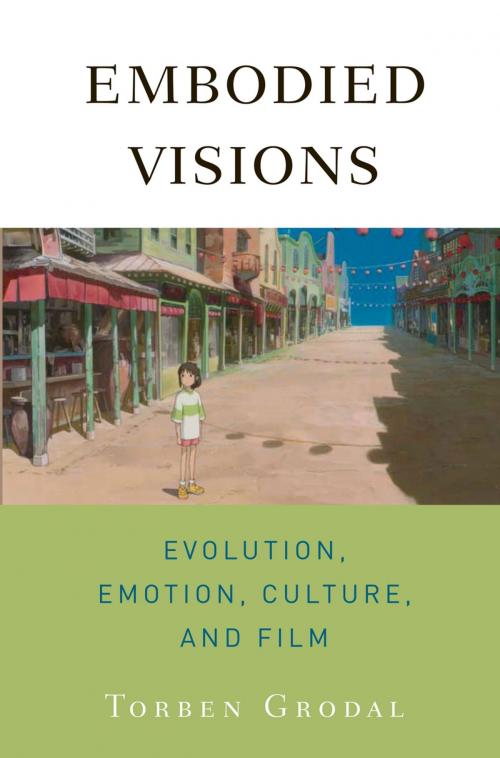Embodied Visions
Evolution, Emotion, Culture, and Film
Nonfiction, Entertainment, Film, History & Criticism, Performing Arts| Author: | Torben Grodal | ISBN: | 9780190451646 |
| Publisher: | Oxford University Press | Publication: | March 17, 2009 |
| Imprint: | Oxford University Press | Language: | English |
| Author: | Torben Grodal |
| ISBN: | 9780190451646 |
| Publisher: | Oxford University Press |
| Publication: | March 17, 2009 |
| Imprint: | Oxford University Press |
| Language: | English |
Embodied Visions presents a groundbreaking analysis of film through the lens of bioculturalism, revealing how human biology as well as human culture determine how films are made and experienced. Throughout his study, Torben Grodal uses the breakthroughs of modern brain science to explain central features of film aesthetics and to construct a general model of aesthetic experience-what he terms the PECMA flow model-that demonstrates the movement of information and emotions in the brain when viewing film. Examining a wide array of genres-animation, romance, pornography, fantasy, horror-from evolutionary and psychological perspectives, Grodal also reflects on social issues at the intersection of film theory and neuropsychology. These include moral problems in film viewing, how we experience realism and character identification, and the value of the subjective forms that cinema uniquely elaborates.
Embodied Visions presents a groundbreaking analysis of film through the lens of bioculturalism, revealing how human biology as well as human culture determine how films are made and experienced. Throughout his study, Torben Grodal uses the breakthroughs of modern brain science to explain central features of film aesthetics and to construct a general model of aesthetic experience-what he terms the PECMA flow model-that demonstrates the movement of information and emotions in the brain when viewing film. Examining a wide array of genres-animation, romance, pornography, fantasy, horror-from evolutionary and psychological perspectives, Grodal also reflects on social issues at the intersection of film theory and neuropsychology. These include moral problems in film viewing, how we experience realism and character identification, and the value of the subjective forms that cinema uniquely elaborates.















